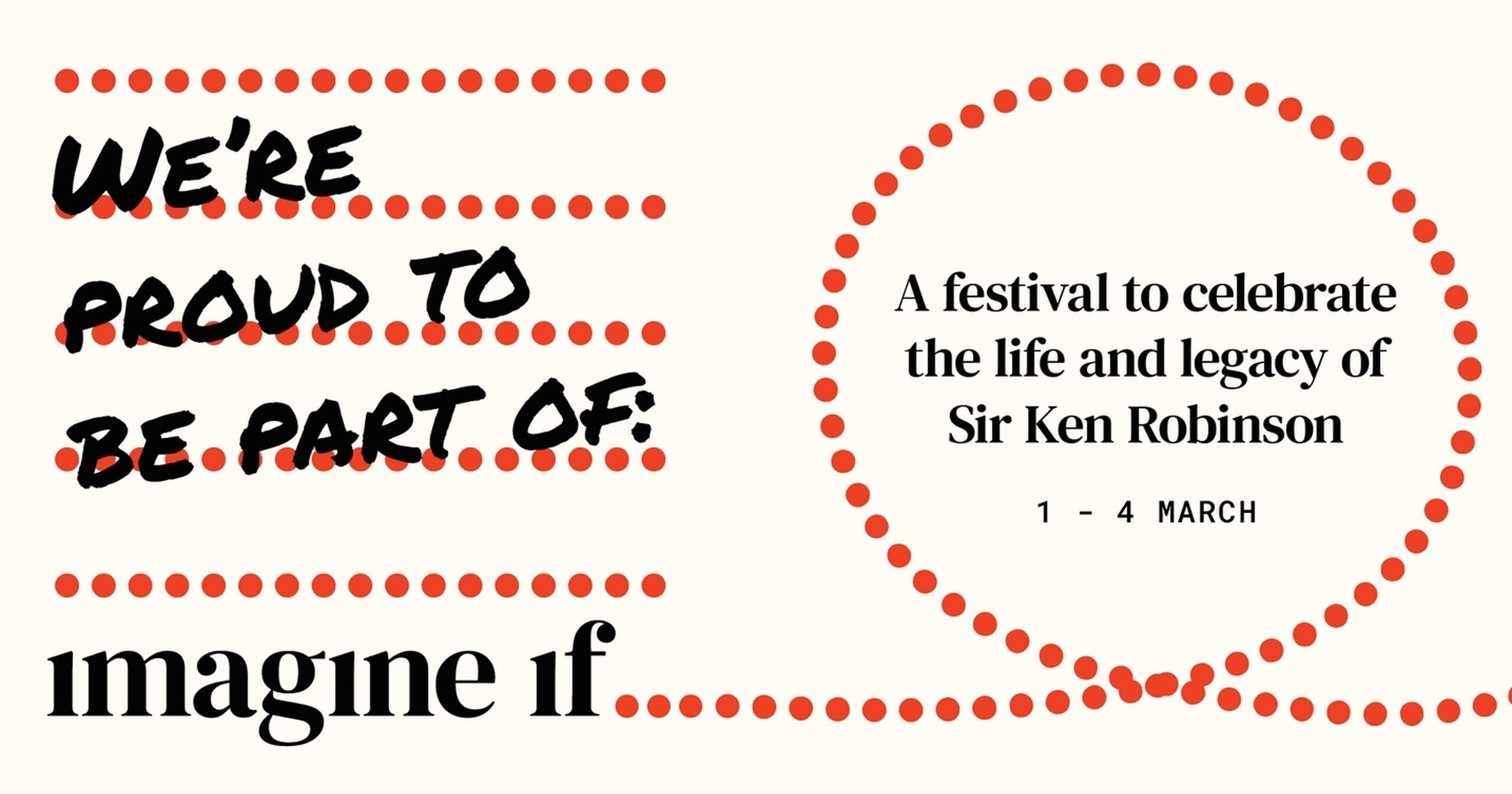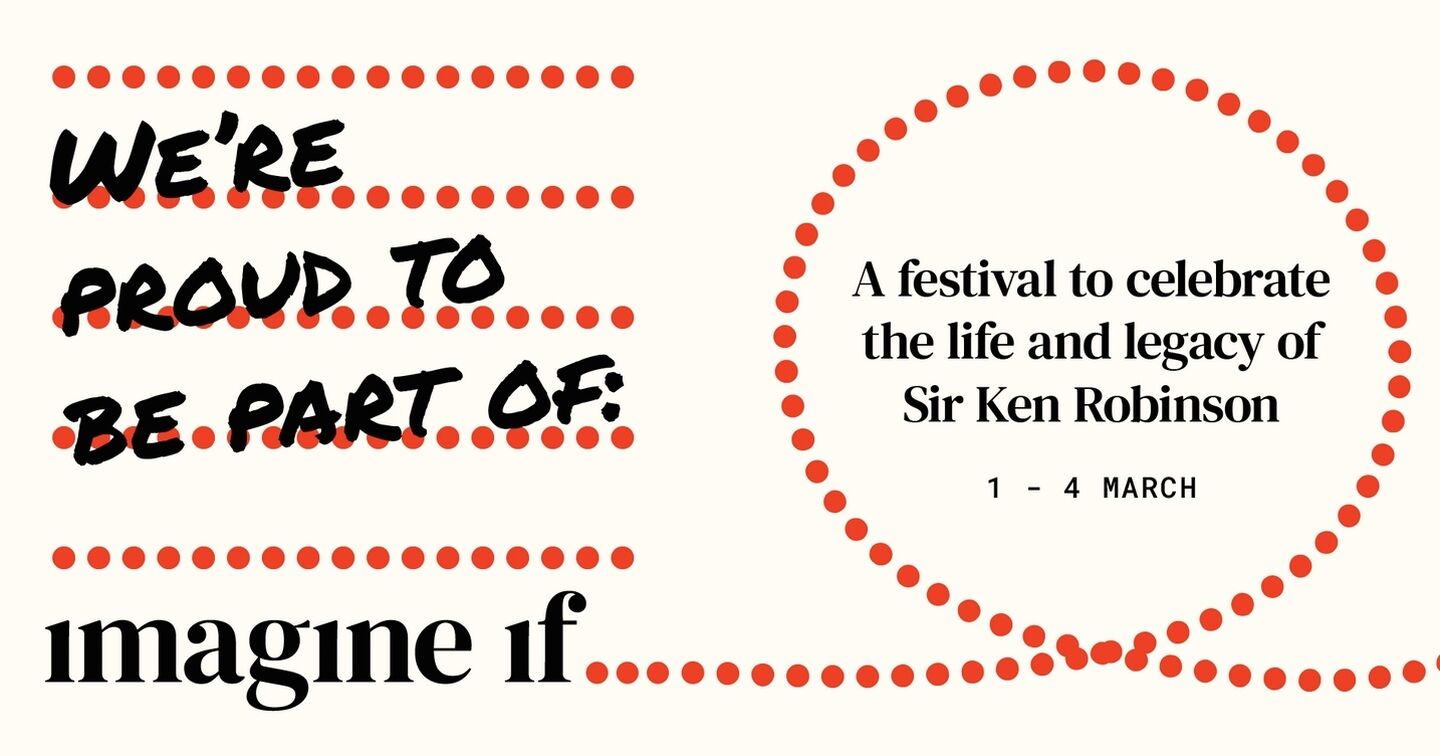

Grant Associates joins Imagine If… global celebration of creative imagination
Grant Associates’ founder and director, Andrew Grant, was pleased to have the opportunity to be part of a worldwide line up of speakers this week, celebrating the life and work of Sir Ken Robinson.
The week-long online celebration Imagine If… recognised the incredible legacy and contribution of the visionary learner, educationist and cultural speaker who is perhaps most well-known for his inspirational ‘Do schools kill creativity?' TED2006 talk, the most viewed TED talk ever now watched more than 90 million times and having a significant impact on educational viewpoints worldwide.

Sir Ken’s observation that what separates us from other life on earth is our power of imagination - our ability to bring to mind things that are not present to our senses - inspired the global event, with a varied panel of speakers from the creative sector contributing their thoughts in a special live stream, held on the date of his first birthday since Sir Ken’s passing in August 2020.
Andrew Grant was part of an extensive global live stream schedule on 4 March 2021, led by Nevergrey’s Kate Robinson and Anthony Dunn and featuring contributions from around the world, including: the Genius 100 Foundation; Chris Anderson, head of TED; Goldie Hawn, actress and founder of MindUP; Sir Tim Smit KBE, co-founder of the Eden Project; screenwriter Richard Curtis CBE; Dr Penny Hay, Reader and Research Fellow, Bath Spa University and Director of Research, House of Imagination; and Kate Cross, Director of the Egg Theatre Bath.
Sir Ken Robinson was a valued patron of House of Imagination and a great supporter of the Forest of Imagination of which Andrew is a co-founder alongside Dr Penny Hay. Speaking at the event (starting at 7:45:30 in the above live stream video), Andrew shared his thoughts on the future possibilities for landscapes to work seamlessly with nature as part of a heavily, bio-diverse ecosystem:
Imagine if… cities were defined not by their buildings and architecture, but by landscape, and ecology. Wouldn’t that be an amazing inversion of the way that we think about urban spaces? Wouldn’t it be a great way of redefining what makes for quality of life when we are living in cities: if we were to structure the way we plan and design our cities around access to nature and the ability to have a diversity of experiences on any given day?
Imagine if … within a ten minute walk from your home, you could visit six or seven amazing pieces of landscape. Perhaps you pass through a woodland, forest, amazing farm … you see a pond or you pass a waterfall. All of these things are possible and can be built in to the way that we create our urban spaces.
We need to reimagine how we plan our living, working environments. Over the last year, we have all realised that access to nature, the seasons, the sounds of birds, the life of the natural world around us is absolutely key to our happiness. Why can’t that be translated into new ways of thinking about creating the places where we live and work?
The Imagine If… project has created an opportunity to put out a proposition of inverting the way we think about landscape: it’s not just a backdrop, it’s part of our life support system: it provides our air, our oxygen, it manages our water and creates food; it’s inspirational and fundamental to human health and wellbeing. So imagine if… we now define ourselves not by buildings and architecture, but by landscape and ecology and nature.
Visit imagine-if.com to learn more about the global Imagine if… campaign.